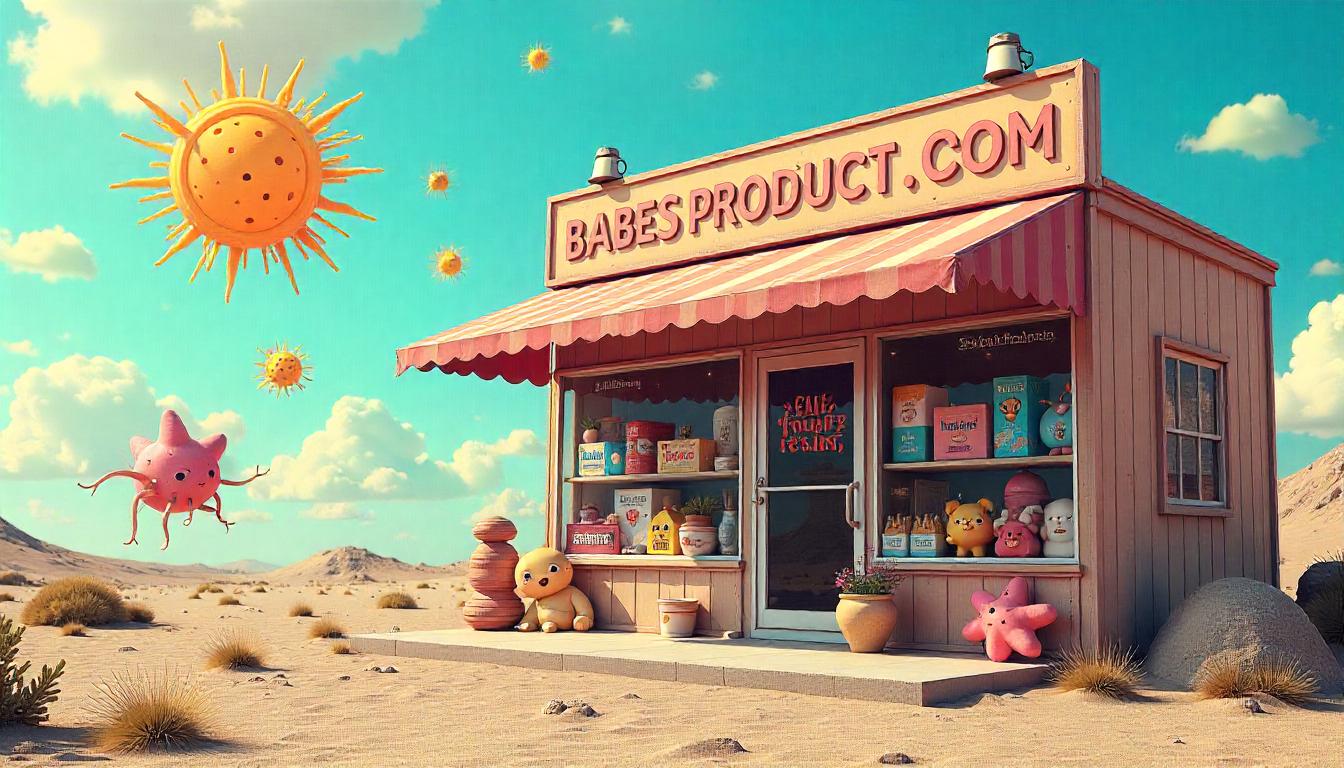In the glorious, digital age of e-commerce, we’ve witnessed a transformation of marketing that has gone from practical to utterly ridiculous. It’s as if we’re all living in a world where practicality is the enemy, and we need to throw some pizzazz, buzzwords, and Instagram-filtered weirdness into every product description. Enter the realm of niche product sites, where you can buy everything from personalized yoga mats (because regular mats are too mainstream) to limited-edition neon-sparkle socks (because why not?).
One site that perfectly encapsulates this absurdity is BabesProduct.com. Never heard of it? That’s because it’s the kind of site you accidentally stumble upon while searching for “revolutionary home gadgets” and get stuck scrolling for hours, questioning your life choices. If you’re into buying a product simply because it has a funky name and a photo of an abstract model posing in front of a desert, then BabesProduct.com is your e-commerce paradise.
But let’s talk about the branding. First off, the name itself is a fever dream of a marketing team’s attempt to seem hip and edgy. “Babes.” It sounds like something a bored college student came up with in a group chat while trying to make a meme go viral. The site is marketed as if it’s offering exclusive, life-changing products for the modern, empowered woman. Yet, you’re browsing through items like a banana-shaped phone holder that doubles as a stress reliever. Practical? Maybe. Empowering? Definitely not.
What really makes these niche e-commerce sites so entertaining, though, is how wildly disconnected marketing has become from the product’s utility. Let’s break it down. Imagine you’re on BabesProduct.com, and you see a cute, pastel-colored “luxury” hand towel that promises to “transform your self-care experience.” The description goes on for paragraphs, explaining how this towel is handcrafted by artisans in the Andes, infused with lavender, and carefully curated by experts who studied wellness for a decade. Then you check the price tag. $80. For a towel. I’m sorry, is this towel going to bring me a latte in bed every morning too? Is it going to do my laundry? Does it somehow do my taxes? Because if not, I’m honestly not interested in a towel that only dries my hands.
This disconnect between product function and marketing hype is everywhere. Take the now-infamous “Premium Handcrafted Self-Watering Plant Pot” on BabesProduct.com. Yes, that’s right, a self-watering pot. Let’s put this into perspective: we’ve managed to create robot vacuums, automatic soap dispensers, and flying cars (okay, not flying cars, but we’re close). And yet, somehow, we’ve managed to invent a pot that waters itself. As if plants couldn’t manage that basic task on their own.
The marketing blurb for this item, naturally, doesn’t focus on the fact that this “innovation” is based on a simple, ancient concept of water retention. Instead, it gushes about how “you deserve the gift of effortless gardening.” As if you, the overworked millennial, are somehow so starved for free time that you need a high-tech pot to keep your fern alive.
It’s hilarious how these products try to speak to a modern, self-actualized audience with words like “empower,” “transform,” and “revolutionize.” But the reality is, nothing is being revolutionized. You’re still buying things like weighted blankets and artisanal coffee mugs at prices that would make an accountant cry. At the end of the day, these sites seem to ignore a crucial fact of consumerism: People are just trying to buy something that does what it says it will, without the added spiritual journey.
So, what’s going on here? Why are we falling for these absurdly overpriced, vaguely marketed “game-changers”? It’s all about the experience, darling. Websites like BabesProduct.com aren’t selling products; they’re selling a lifestyle. They want you to feel that moment when you unbox your overpriced candle and think, “Wow, I’m so in the self-care movement now. I’m an aesthetic goddess who bathes in lavender oils.” Does it smell like lavender? Sure, but that’s not the point. The point is that you’re now part of a group of “visionary” buyers who are willing to pay $40 for something that smells like grandma’s closet just to fit in with some online persona.
It’s no surprise that some of the most successful marketing strategies today rely on disconnection. If you can get people to buy something for no other reason than the “vibe” it gives off, then you’ve got them hooked. They’ll buy a coffee mug with a slogan like “But First, Coffee” even though they’ve already got five mugs at home, because this one promises to make them feel just a little more extra in the mornings.
These niche sites rely on the cult of personality to sell products. The model is simple: pick something utterly mundane, slap a cute, quirky name on it, and then surround it with lifestyle branding that makes you feel like you’re missing out if you don’t buy it. Before you know it, you’re spending your paycheck on an ultra-premium, limited-edition cat-shaped spoon rest that promises to “bring joy to your kitchen space.” Because who wouldn’t want their kitchen to radiate joy? (Whatever that means.)
In conclusion, BabesProduct.com and its ilk aren’t just absurd for their strange product offerings; they’re absurd because they exploit a fundamental truth of consumerism: people are willing to pay for an experience that promises to elevate their lives, even if the product itself does little more than take up space on their counter. In a world where utility has taken a backseat to aesthetic vibes, the real question is: what’s next? A $200 beanbag chair that “encourages relaxation” through “mindful stuffing”? Probably. And you’ll probably buy it, too.
4o mini


